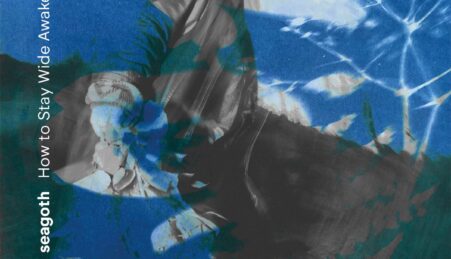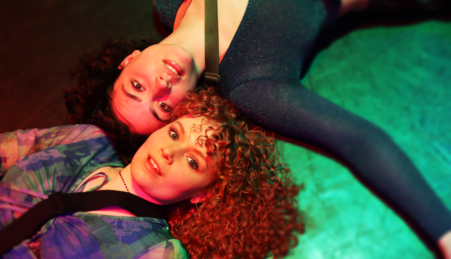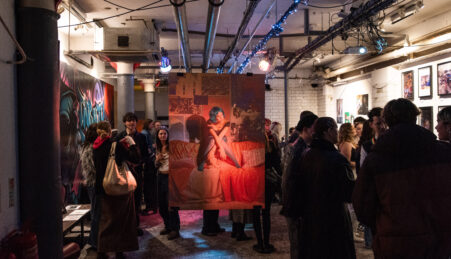
Humanity Hallows Issue 5 Out Now
Pick up your copy on campus or read online
By Bridget Taylor
Manchester Met recently hosted the second in a series of events organised by Sites of Resistance, a collective formed by members of the Sociology department that aims to ‘challenge state power and injustice.’
The event was opened by Kathryn Chadwick, Senior Lecturer and one of the founders of the group, who emphasised the importance of taking action: “Critical research has the potential to, and should, interject. It has the ability to make links between struggles, policies, and the way they are put into practice, and to counter dominant, powerful, and often official, narratives.” Further to this, she added that the work that the group’s work goes beyond research, into “efforts to build a space within the university to support groups challenging the process of criminalisation” in the wider community.
This notion of the ‘scholar activist’ came up in Sarah Lamble’s presentation of her work. Dr. Lamble lectures at the School of Law at Birkbeck, University of London, and said she was an activist before she was an academic. She spoke about the need for collaboration across activist and academic contexts, and emphasised the importance of taking a ‘structural’ approach in order to look at the bigger picture.
She gave the example of campaigners fighting to get a transitioning prisoner moved from a men’s to a women’s prison. This campaign would surely have had good intentions, and may have alleviated some of the suffering of the prisoner in question, but Dr. Lamble argued that it fundamentally supposed there was a ‘right’ prison for this person, when, in fact, as she stated, “There’s no ‘right’ prison for anyone. We should be asking, why are trans people over-incarcerated in the first place, and what can we do to stop that happening?”
The tension between our typical idea of the academic as neutral and objective, and that of the activist as fiercely partisan, came out in Lecturer at York Law School Dr. Joanna Gilmore’s presentation. Dr Gilmore researches the policing of protests, and she does it from the perspective of those who are being policed, as part of the group of activists, rather than standing behind police lines. She is often challenged on her ability to remain neutral, the assumptions being that, as an academic, she can and should remain neutral, and that working with the police would not compromise her neutrality.
Dr Gilmore said, “It is not possible to fully understand policing unless your research is grounded in those who are subject to it.” She also pointed out that an academic’s standpoint fundamentally cannot be neutral, especially when he or she is witnessing and recording police violence, and that the police and those who work with them are not immune from partisanship: “The police have never been neutral, the institution has always been deeply racist, sexist and classist – they are not just ordinary citizens in uniform.” Fundamentally she argued that, “Policing researchers should be explicit about their standpoint”, especially when there is a growing collaboration between universities and the police, in the context of a crisis in policing.
The nature of this fundamental bias was then gone into in more detail by Dr. Adam Elliot-Cooper, from the Department of Geography and Urban Planning at Kings College London. He outlined the “criminalising of black masculinity” by the state, which particularly came to the fore in the police shooting of Mark Duggan, which sparked the Tottenham riots in 2011. For the police officer being questioned at the inquest, the operation was successful because they had done what they set out to do, highlighting how police violence is seen as a legitimate response, when they have this kind of deeply ingrained attitude that automatically categorises black men as dangerous criminals.
The difficulty is the enormity of the task of resisting this kind of deeply institutional racism and state violence, especially when activists only have ‘grassroots’ resources. It was surprising that, given the title of the event, there wasn’t more of an exploration of how you might link up the different struggles these academics are engaged with, in order to take collective action – because that is surely where the strength of any kind of resistance lies.
Professor of Criminology at the Open University Steve Tombs argued that “The university is a site of power and privilege, and with that comes the obligation to further some form of social justice”, even as universities are becoming more ‘risk-averse’ places due to the implementation of government strategies like Prevent, which is meant to ‘prevent’ radicalisation but actually targets anyone they consider to be a potential extremist, including Muslims and protestors.
For Dr. Sarah Lamble , the way to tackle structural injustice, is to borrow the idea of ‘non-reformist reforms’ from former black panther and civil rights activist Angela Davis, which asks the question: is your immediate intervention a part of dismantling the system? You have to link each individual campaign to a broader, long term strategy that works towards a world without the prison industrial complex. Just one of the interesting questions this event raised on the role of the academic, and the capacity for universities to be ‘sites of resistance’.
The next Sites of Resistance event takes place on Thursday 23rd March, 6-8pm at No 70 Oxford Street.






Leave a reply